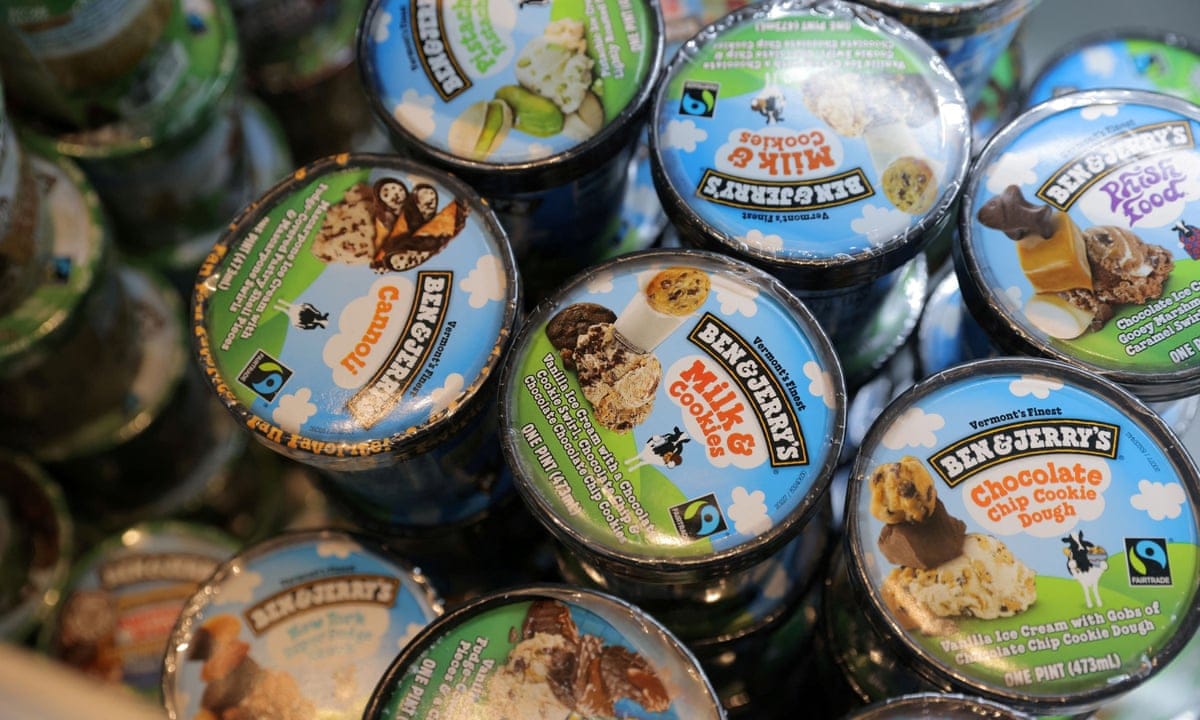Unilever, renowned for popular brands such as Marmite, Dove, and Ben & Jerry's, has defended its decision to implement continued price increases despite reporting an impressive 17% increase in profits.
Stock prices of the London-based corporation experienced a surge of 6% early Thursday morning following Unilever's announcement that their profit margins had expanded by 2.5 points to reach 19.6% during the first half of this year, marking a substantial advancement beyond analyst projections. Prices for products also increased by an average rate of 1.6%.
Unilever's operating profit saw a remarkable growth of 17.1%, up from the previous period to June, reaching €6.1 billion (£5.14 billion), attributed in part to carry-over pricing resulting from periods with higher inflation rates and enhanced efficiency due to increased sales volume and premium brands.
Unilever's Chief Executive, Hein Schumacher, commented on the matter, stating that the company had not transferred all of the impacts of inflation onto consumers over the last year.
Despite these strong financial results, Unilever acknowledged a slowdown in the US beauty market and disappointing sales figures in Southeast Asia amid consumer boycotts associated with events related to Gaza. Additionally, ice-cream sales decreased by 1% due to unseasonable weather patterns across Europe and challenges within China's competitive market conditions. Unilever stated that it is on track to separate its ice-cream business, including well-known brands such as Magnum and Wall's Ice Cream, from the company by year's end.
These developments contrast with a challenging first half for rival Nestlé, which anticipated slower sales growth for the next six months than originally projected. Increased competition in various markets like China and price pressures elsewhere have contributed to this situation.
Analysts at Jefferies expressed concerns about declining pricing levels and brand strength amidst a climate of rising cost-of-living pressure, which encourages consumers to consider more affordable supermarket own-label alternatives. However, Unilever's Chief Executive reassured stakeholders by projecting profit margins at least 18% for the second half of the year, expecting prices across the grocery sector to continue increasing between 2% and 3% into the following year.
Fernando Fernandez, Unilever's Finance Director, highlighted that while wage inflation remains a notable factor impacting costs, not all additional expenses would be passed onto consumers as maintaining brand competitiveness is crucial to the company.
Read next

Ryanair plane had only six minutes of fuel upon Manchester landing, records show
Flight Narrowly Avoids Disaster After Storm Diversion
An inquiry has been launched after a Ryanair flight, struggling against severe winds during storm Amy last week, landed at Manchester Airport with only six minutes’ worth of fuel remaining.
The aircraft had been transporting passengers from Pisa, Italy, to Prestwick, Scotland, on

"Qantas customer data for 5 million exposed as hackers release info post-ransom deadline"
Hackers Leak Personal Data of 5 Million Qantas Customers on Dark Web
A cybercriminal group has released personal records of 5 million Qantas customers on the dark web after the airline did not meet their ransom demand.
The breach is part of a larger global incident affecting over 40 companies,

Investors flee record-high UK stocks as EU set to hike steel tariffs
Investors Withdraw Record Sums from Equity Funds Amid High Market Valuations
Data reveals that investors in the UK have withdrawn an unprecedented amount of money from equity funds over the past three months, driven by concerns over soaring stock market valuations.
According to the latest figures from Calastone, the largest

